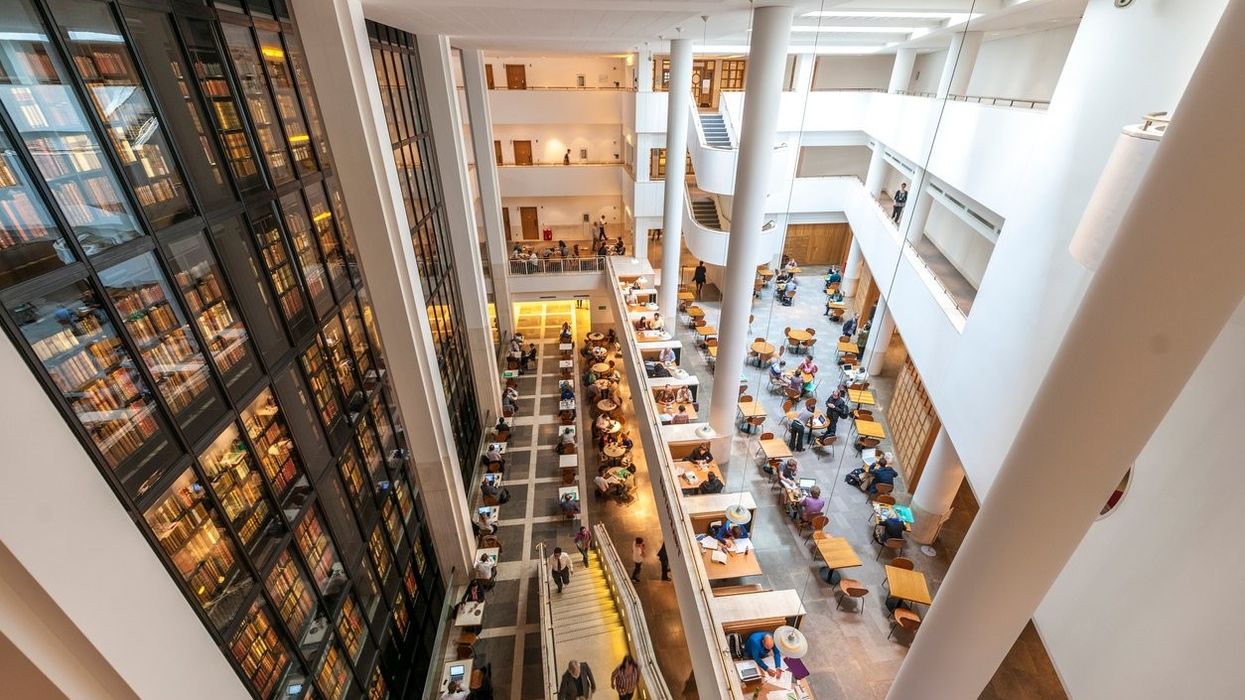The British Library in London is celebrating the 75th anniversary of India’s independence with a special photographic exhibition on the UNESCO World Heritage Site of Hampi in Karnataka.
‘Hampi: Photography and Archaeology in southern India’ is made up of a display of photographs taken between 1857 and 1970 capturing the archaeological site of Hampi – the capital of the prosperous Vijayanagara kingdom established in the 14th century.
The display, enhanced by three works by celebrated photographer Raghu Rai, is devised as a lens on the archaeological legacy of Hampi through the archives of the British Library and the research activities that have played a role in preserving the city’s cultural heritage.
“An Italian traveller documented that this was the most extraordinary city in the world at the time,” said Vikram Doraiswami, Indian High Commissioner to the UK, at a celebratory event for the exhibition in London on Monday (12).
“It had the most amazing urban architecture, it was a developed, flourishing, prosperous city. Even today when you visit it, you need several days to take in the totality of Hampi...In this 75th year of India’s independence, the High Commission is happy to work with the British Library, which holds so much that is wonderful and gives us all an opportunity to be part of history and to be able to celebrate and share it in special ways,” he said.
The ancient city was located along the banks of the Tungabhadra River and temple complexes, palaces and administrative buildings were built amongst the rugged landscape of granite boulders.
After flourishing for over 200 years, Vijayanagara fell to a rival kingdom in 1565 and Hampi was abandoned. But its ongoing religious significance and its designation as a UNESCO World Heritage site in 1987 mean it continues to attract worshippers and tourists to this day, something the British Library exhibition aims to celebrate.
The London exhibition, curated by the library’s Head of Visual Arts Malini Roy, is part of a wider programme on South Asia at the British Library and is linked to the ‘Early Photography and Archaeology in Western India’ exhibition being showcased at the Chhatrapati Shivaji Maharaj Vastu Sangrahalaya (CSMVS) in Mumbai since last month.
“This spotlight exhibition on Hampi is part of a year marking India@75, which has seen outstanding events and programmes in both countries to mark 75 years of independence. Our connection with partners in India remains strong,” said Dame Carol Black, chair of the British Library.
The sister exhibition at CSMVS in Mumbai is part of the British Council’s India/UK Together, Season of Culture. Skinder Hundal, Global Director of Arts at the British Council, added: “It brings us the opportunity to view some of rarest, earliest and the most striking photographs and objects of India’s rich archaeological heritage.
(PTI)





